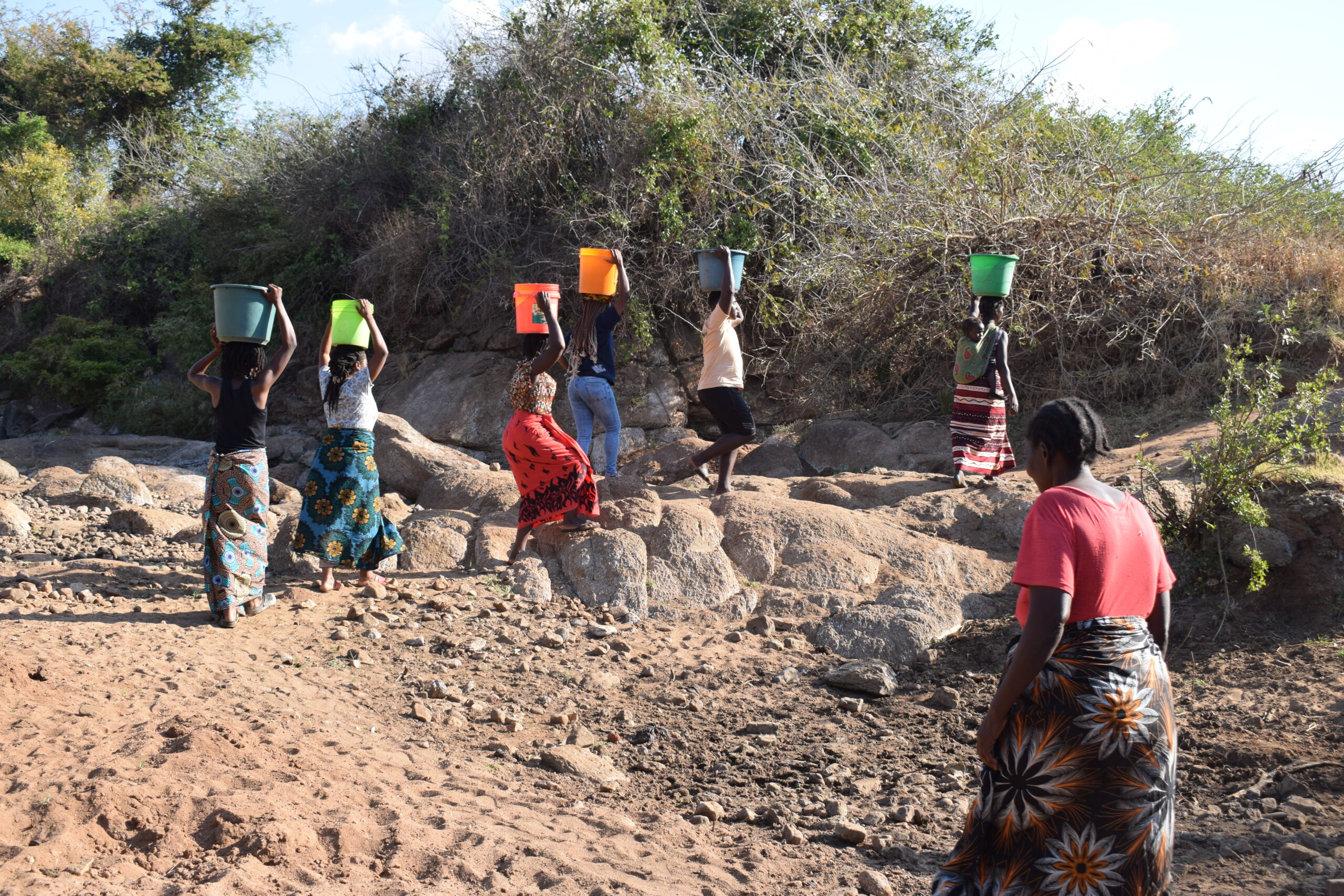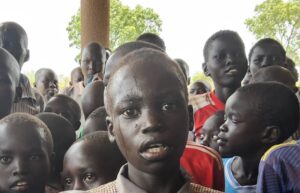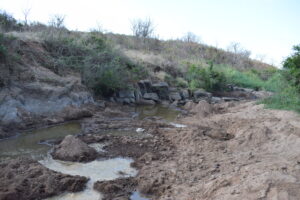
This year’s World Water Day theme is focused on ‘peace’ and for good reason.
Water can create peace or spark conflict. When water is scarce or polluted, or when people have unequal or no access, tensions can rise between communities and countries.
More than 3 billion people worldwide depend on water that crosses national borders. Yet, out of 153 countries that share rivers, lakes and aquifers with their neighbours, only 24 countries report having cooperation agreements for all their shared water (UN Water, 2021).
Pollution, climate change and rising sea levels puts such a precious resource in jeopardy and in the places in which we work – access to water can be a life or death situation for some.

School children from Peter Faber Primary in Rumbek, South Sudan endure heatwave.
Yesterday, global warming couldn’t be more blatant. South Sudan saw temperatures soar to over 45 degrees Celsius. In response to the extreme heat nationwide schools, including those we aid, were forced closed amid the dangerous heatwave.
This is becoming increasingly common in the global south, and it is heartbreaking to receive reports from our partners in South Sudan describing the struggle of marginalised communities in real-time as they try to adapt to extreme weather.
As a global community, if we fail to collaborate and work together to combat climate change the global south, often the poorest countries, will continue to experience hardships in ongoing humanitarian and climate crisis. Heatwaves putting an entire region into standstill is one tale representing the reality for many and is sadly a common threat marginalised communities must be supported on to build resilience and physical protection, especially children.
Rising sea levels due to global warming causes sea-intrusion a form of water pollution which affects our groundwater which is a finite resource and fundamental to life on earth.
I saw firsthand, on a field visit to Malawi last year, how lack of access to water caused by water conflict by way of restricting water flows across national borders and pollution has detrimental affects on communities. Thiba village is one such place, where lack of water is having domino effects on the lives of Malawian people, especially women.
 Visiting the village with our partners at the Jesuit Centre for Ecology & Development (JCED) was incredibly harrowing as the community there suffers huge water scarcity – I followed the women to collect water, a dangerous task usually in darkness in the early hours of the morning, they spoke of their troubles, of dangers of hyenas & the polluted water they had no option to use. It was an eye-opening experience carrying the water and following their treacherous path.
Visiting the village with our partners at the Jesuit Centre for Ecology & Development (JCED) was incredibly harrowing as the community there suffers huge water scarcity – I followed the women to collect water, a dangerous task usually in darkness in the early hours of the morning, they spoke of their troubles, of dangers of hyenas & the polluted water they had no option to use. It was an eye-opening experience carrying the water and following their treacherous path.
Communities in places such as Thiba are among the less privileged people who suffer not only from extreme drought due to the impacts of climate change but suffer from water pollution.
The lack of access to clean and safe water forces the villagers to rely on rivers for domestic water. Unfortunately, these rivers are often polluted by industries. Worse still, the rivers dry up during the summer forcing vulnerable groups such as women and children to search for water elsewhere jeopardising their safety.
At IJI we believe water is a human right and work with our partners in both South Sudan and Malawi to address the inequalities marginalised communities are burdened with.
On this side of the globe, water is often taken for granted but on World Water Day it is important that we think consciously about caring for our common home and climate action which is about fairness – seeking to help and support the most marginalised.
If you would like to help us support marginalised communities by way of clean and safe water as well as other development projects.


